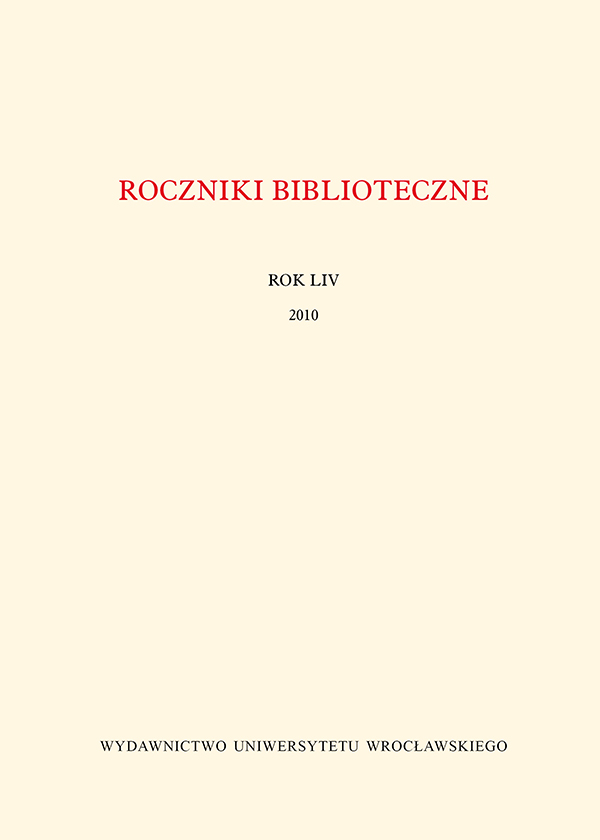

Materiały

The role of school libraries in popularising german literature in the Duchy of Warsaw and the Kingdom of Poland
Polish authors writing about the history of literature usually fail to notice the influence of
German literature on the preparation of the Romantic breakthrough 1822 in Polish literature. An important role in the birth and development of this ideological and artistic movement was played by schools. Schools in the Duchy of Warsaw, formed 1807 from lands taken by Prussia during the 2nd and 3rd Partition of Poland, subsequently expanded to include some lands from the Austrian part of the partitioned Poland 1809 and then, following Napoleon’s defeat, transformed into the Kingdom of Poland 1815, employed many teachers of German origin as well as Poles who had graduated from German universities. Hence the presence of German authors such as Klopstock, Gleim, Gellert, Rabener, Herder, Lessing, Goethe, Schiller and Schlegel in the curricula 1810, 1812 and 1820 and recommended reading lists 1812 and 1820. The popularity of books by German authors is also confirmed by surviving inventories and catalogues of school libraries Lublin, Szczebrzeszyn, Płock, Kalisz, Poznań and school reports Warsaw. The present author disagrees with the current conclusions of literature scholars with regard to the sources of aesthetic inspirations of Polish Romanticism.